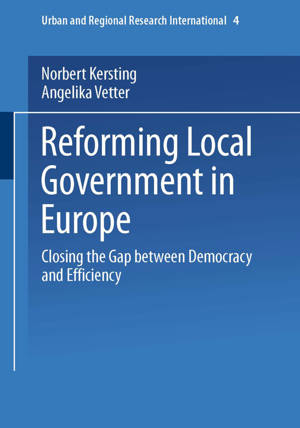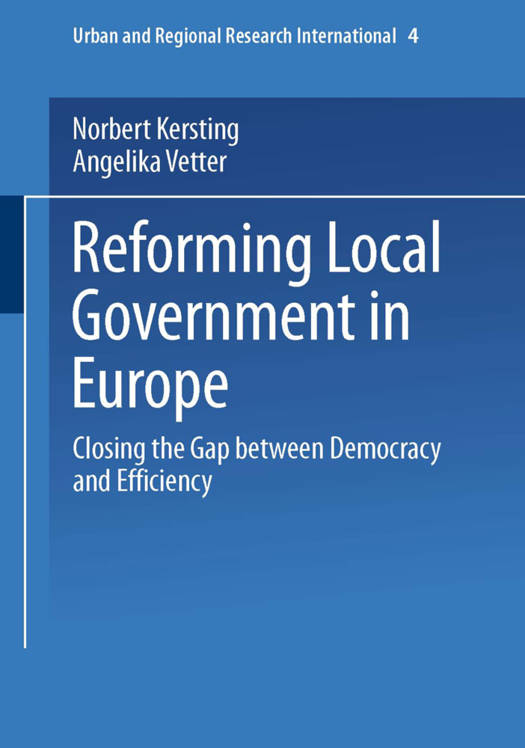
- Afhalen na 1 uur in een winkel met voorraad
- Gratis thuislevering in België vanaf € 30
- Ruim aanbod met 7 miljoen producten
- Afhalen na 1 uur in een winkel met voorraad
- Gratis thuislevering in België vanaf € 30
- Ruim aanbod met 7 miljoen producten
Zoeken
Reforming Local Government in Europe
Closing the Gap Between Democracy and Efficiency
€ 105,45
+ 210 punten
Omschrijving
Worldwide processes of transnationalization are accompanied by new chal lenges for the democracies of the Western world. On the one hand these proc esses ask for more efficient and effective ways of policy-making. On the other hand the legitimacy of the political systems is also challenged by growing dif ficulties of bringing the citizens (back) to politics. This gets more and more difficult with the increasing transfer of formerly national political competen cies to supra-national institutions. Thereby the political decision-making processes loose their transparency and the chances of the man in the street to understand and influence the political process decline. But not only in West em Europe political systems have to enhance citizens' support by increasing their input-and output-legitimacy. This holds as well for the "new" democra cies in Central Europe, which had to rebuild their systems after the fall of communism in the beginning of the 1990s. Facing these problems of political legitimacy structural and procedural reforms are on the agenda in almost all European democracies. Local authorities are one of the main actors in this context of public sector reform. The different political and administrative reforms of local govern ments during the last decades were implemented with regard to their positive consequences for at least one of the goals mentioned above.
Specificaties
Betrokkenen
- Uitgeverij:
Inhoud
- Aantal bladzijden:
- 349
- Taal:
- Engels
- Reeks:
- Reeksnummer:
- nr. 4
Eigenschappen
- Productcode (EAN):
- 9783810039583
- Verschijningsdatum:
- 30/09/2003
- Uitvoering:
- Paperback
- Formaat:
- Trade paperback (VS)
- Afmetingen:
- 140 mm x 216 mm
- Gewicht:
- 408 g

Alleen bij Standaard Boekhandel
+ 210 punten op je klantenkaart van Standaard Boekhandel
Beoordelingen
We publiceren alleen reviews die voldoen aan de voorwaarden voor reviews. Bekijk onze voorwaarden voor reviews.










